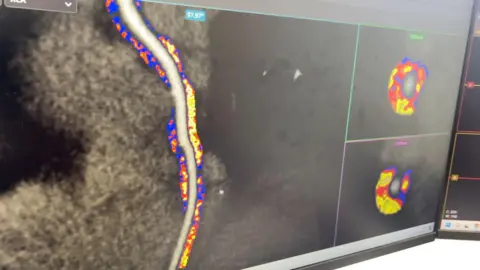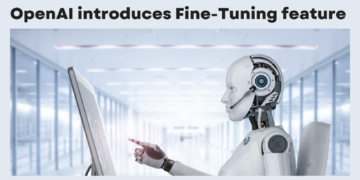Traditional methods to detect heart attack risk have undergone quite the advancement in recent years. But the disease is a silent killer. It often goes undetected in the form of early-stage heart inflammation. Researchers are using AI in medicine for psychology research, drug discovery or creating new protein sequences. Most recently, scientists used AI to identify risk to find a solution before the threat can escalate into a full-blown heart attack.
Researchers at Oxford University have developed a groundbreaking AI model capable of deciphering hidden clues within CT scans. By identifying subtle signs of inflammation in the heart, this technology can predict the risk of a heart attack up to ten years in advance.
How Using AI in Medicine Can Identify the Risk?
The human eye, even with the aid of advanced imaging, may overlook the early warning signs of heart disease. AI, however, possesses the computational power to analyze vast amounts of data and detect patterns imperceptible to humans. By scrutinizing CT scans for subtle indicators of inflammation, the AI model can identify individuals at heightened risk.
Prevention
Early detection is the cornerstone of effective disease management. Armed with this advanced AI tool, healthcare providers can proactively intervene to prevent catastrophic events. By prescribing lifestyle modifications, such as increased physical activity and dietary changes, or administering preventive medications, doctors can significantly reduce the risk of heart attack.
AI in Medicine: The Orfan Study
The Orfan study researched the potential of this technology by studying involved 40,000 patients. By employing the AI model to analyze CT scans, researchers identified a subset of patients with elevated inflammation levels. These individuals were found to be at a 20 to 30 times higher risk of experiencing a fatal cardiac event within a decade.

Remarkably, by implementing preventive measures based on the AI’s findings, researchers were able to reduce the risk of heart attack by 45% in this high-risk group. These results highlight the transformative power of AI in saving lives.
Expanding Horizons
The applications of this AI technology extend beyond heart disease. Researchers are actively exploring its potential to predict strokes and diabetes, offering hope for a future where multiple chronic conditions can be detected and managed more effectively.
Challenges and Opportunities
While the promise of AI in healthcare is undeniable, challenges must be addressed to realize its full potential. Ensuring data privacy, mitigating algorithmic bias, and integrating the technology seamlessly into clinical workflows are essential considerations. Despite these hurdles, the future of heart health is undeniably bright. With continued research and development, AI has the potential to redefine how we prevent and treat heart disease, ultimately saving countless lives.



























